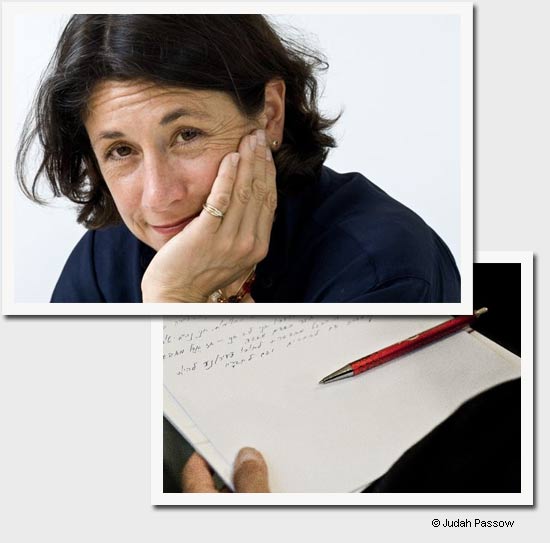
“Every democracy must be stimulated, challenged and developed – continuously. Democracy lives and thrives through self-critical confrontation with the past – personal and collective – and by scrutinizing the assumptions of earlier generations. Where such reflection does not take place, people adhere rigidly to generationally-transmitted patterns of thinking, feeling and action. Lack of reflection allows far-right and nationalistic forces present outmoded messages of salvation that develop their own dynamics and create new injustice.
By means of dialogue my work, in an interdisciplinary and international fashion, confronts the past to develop tasks for the present so that society can withstand anti-democratic, antisemitic and racist trends and movements in the future.”
Alexandra Senfft
Alexandra’s central themes
- Biographical work, life portraits, political analysis
- Intergenerational consequences of the Holocaust, especially for perpetrators’ descendants
- Dialogue between descendants of Holocaust survivors and of Nazi victimizers
- Storytelling and dialogue in intractable conflicts based on the resolution approach of Israeli psychologist Dan Bar-On
- Israel and Palestine: the conflict and the Peace Movement
- Germans vis-a-vis Israelis and Palestinians in the Middle East Conflict
- Anti-Semitism, populist hostility to Muslims, anti-Roma racism
Senfft presents and discusses her areas of expertise in Germany and abroad. She lectures, participates in round tables and panels, speaks on radio and TV, features in film documentaries. Outside of Germany, Senfft has presented her work for example at the University College London (UCL), the Leo Baeck College (London), Facultad de Ciencias Sociales (University of Buenos Aires), Ben Gurion University (Israel), Harvard University (Boston), Brandeis University (Newton, MA), Queens University (Charlotte, North Carolina), in synagogues in Birmingham (Alabama), Savannah and Augusta (Georgia), in Austen Riggs Center (Stockbridge, USA), Goethe Institute, Bratislava (Slovakia) or Heinrich Heine Haus (Paris).
In March, 2024 she published “Greatuncle Paul’s violin bow. The family history of a Prussian Sinto” with her co-author Romeo Franz.
Her book, Silence Hurts: A German Family History («Schweigen tut weh. Eine deutsche Familiengeschichte», Ullstein Buchverlage, Berlin 2007) won the German ‘Best Biography Award’ [2008]. The book was translated into Slovakian and published in Bratislava in September 2018.
Alexandra’s book Strange Enemy, so far. Encounters with Palestinians and Israelis («Fremder Feind, so nah. Begegnungen mit Palästinensern und Israelis») was released in 2009, and in 2016 she published The Long Shadow of the Perpetrators. Descendants face their Nazi family history («Der Lange Schatten der Täter. Nachkommen stellen sich ihrer NS-Familiengeschichte»).
She is deputy chair of the Study Group on Intergenerational Consequences of the Holocaust, PAKH, on the board of the Lagergemeinschaft Dachau, a member of PEN Berlin, Pro Asyl and Reporters without Borders
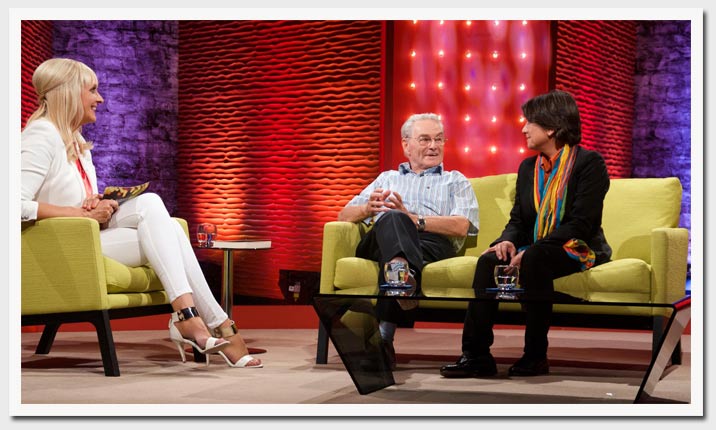 With Holocaust survivor Tomi Reichental in TV Show “Saturday Night with Miriam”, Ireland
With Holocaust survivor Tomi Reichental in TV Show “Saturday Night with Miriam”, Ireland
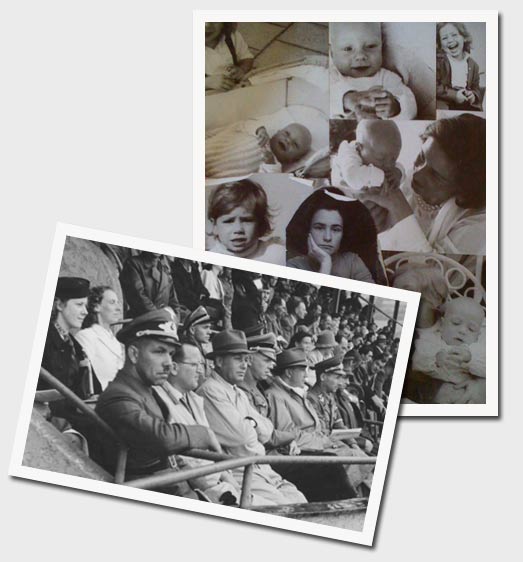 Despite the fact that Germans, both academically and politically, have taken great strides towards exposing the crimes committed during the National Socialist period, silence still continues to rule with respect to the biographical handling of the past. Not only within the context of families, but also in society more generally, the perpetrators are always »others«.
Despite the fact that Germans, both academically and politically, have taken great strides towards exposing the crimes committed during the National Socialist period, silence still continues to rule with respect to the biographical handling of the past. Not only within the context of families, but also in society more generally, the perpetrators are always »others«.
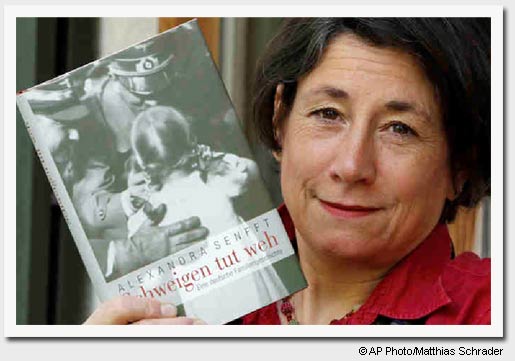
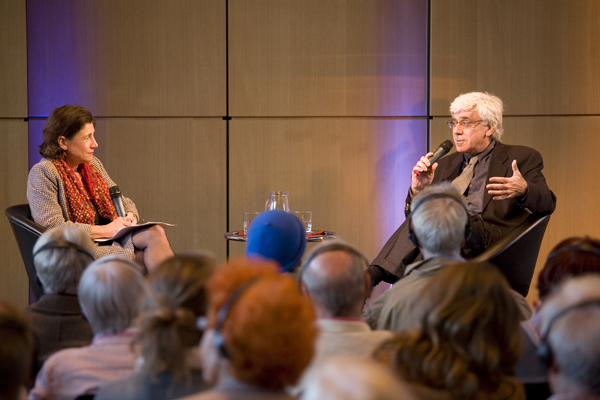
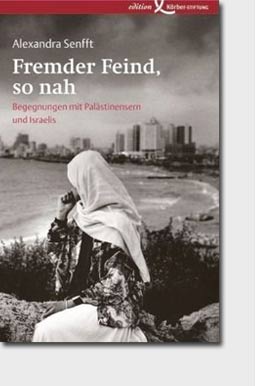 »Sensible people easily find a compromise when they are aware of the most important needs of the other side’, said Palestinian philosopher Sari Nusseibeh …«
»Sensible people easily find a compromise when they are aware of the most important needs of the other side’, said Palestinian philosopher Sari Nusseibeh …«